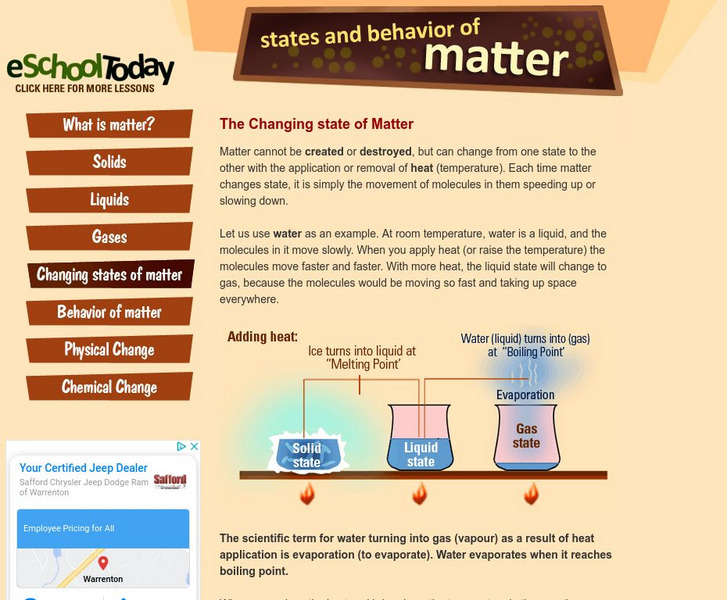BBC
Bb Ci Schools: Revisewise Science: Solids, Liquids, Gases
This site contains an interactive activity in which students can learn about the three states of matter. There is also a factsheet that lists numerous properties of liquids, solids, and gases. The factsheet also uses water as an example...
eSchool Today
E School Today: The Changing State of Matter
Learn about the changing states of matter.
National High Magnetic Field Laboratory
Magnet Academy: Jean Charles Athanase Peltier (1785 1845)
Although he didn't start studying physics until he retired from the clock-making business at age 30, French native Jean Peltier made immense contributions to science that still reverberate today. Even with the primitive tools available...


